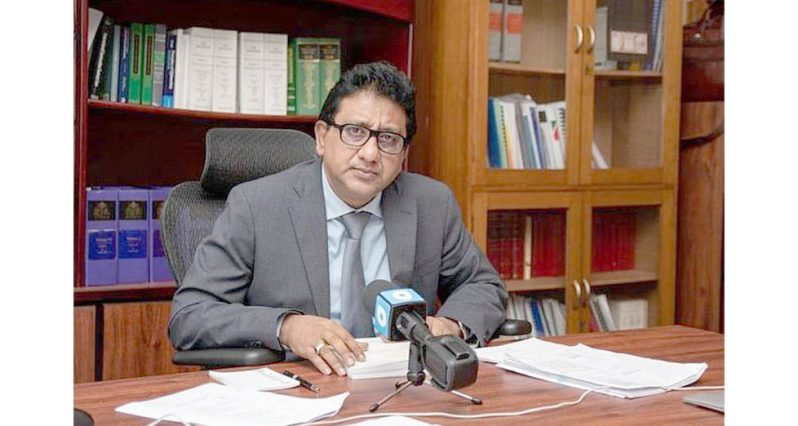–AG calls on CARICOM nations to sign on to the premier institution
THE Caribbean Court of Justice (CCJ) stands as one of the region’s greatest achievements, yet it continues to suffer from the lack of full support, a situation Attorney-General and Minister of Legal Affairs Anil Nandlall, SC, has described as an “enigma,” while calling on the Caribbean Community (CARICOM) states to adopt the court’s appellate jurisdiction.
The Attorney-General made these remarks during his weekly programme, ‘Issues in the News,’ as he called on the Caribbean states to sign on to the premier institution to demonstrate greater regional integration.
Nandlall’s comments come following the swearing in of Justice, Dr Christopher Arif Bulkan, the newest judge of the CCJ. A Guyanese legal luminary, Dr Bulkan was sworn in last Thursday as a CCJ judge, becoming the third Guyanese that will serve on the regional court’s bench.
Dr Bulkan took the oath of office before President, Dr Mohamed Irfaan Ali during a formal ceremony at the Office of the President, Shiv Chanderpaul Drive, in Georgetown. The event was attended by CCJ President Justice Winston Anderson, members of the judiciary and the Guyana Bar Association and senior government officials.
Nandlall stated that during a courtesy call from the CCJ President, Justice Anderson spoke about the lack of support that the CCJ faces.
The Attorney-General emphasised the importance of the court as a pillar of regional unity and judicial independence and stated: “I believe that Guyana has a duty to try to influence other members of CARICOM to sign on to the appellate jurisdiction of this court.”
Guyana, Barbados, Belize, Dominica and Saint Lucia are the only Caribbean territories that have adopted the court in its appellate jurisdiction. Despite hosting the court’s headquarters, Trinidad and Tobago has not yet replaced the Privy Council, Nandlall highlighted.
The remaining CARICOM member states participate only in the court’s original jurisdiction, which deals with matters arising from the Treaty of Chaguaramas and other regional agreements.
Guyana was one of the first territories to adopt the court as its final court, therefore, cases starting in Guyana can go from the High Court to the Court of Appeal to the CCJ.
The Attorney-General said: “So most of the Caribbean, independent Caribbean territories have not signed on and that’s a travesty. We often speak about regional integration. We passionately pursue regional integration. We passionately pursue our rights as sovereign nations. We passionately pursue issues such as regional unity.
“We passionately pursue issues such as the creation of a Common Single Market and Economy, and here it is that we can’t get our acts together to support one of the most significant regional institutions in the Caribbean, the Caribbean Court of Justice; there is hardly another institution of greater significance than the CCJ.”
He said not signing on to the CCJ is an “oddity,” and highlighted how valuable the court has proven itself, especially in Guyana’s jurisdiction.




.jpg)









